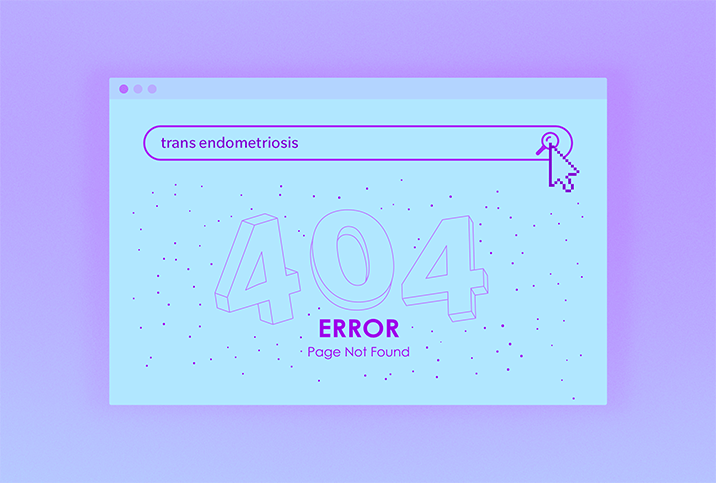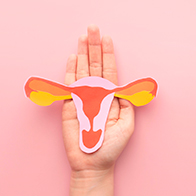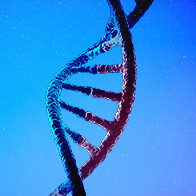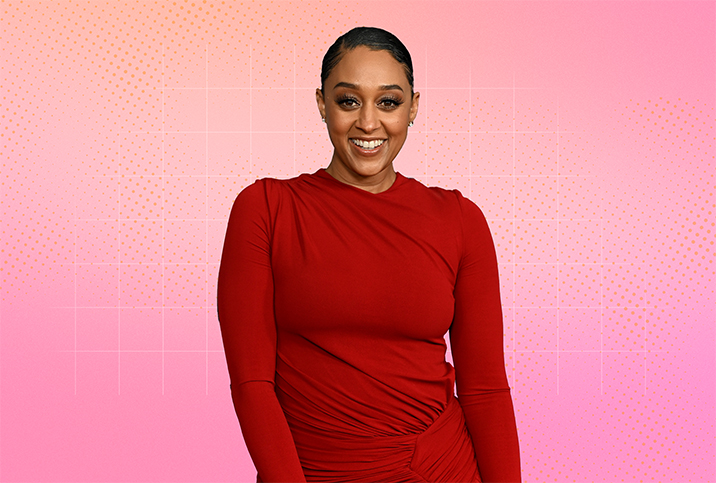I'm a Trans Man With Endometriosis

Editor's note: Alex, 21, a transgender man living with endometriosis who requested his full name and location not be used, told his story to Hannah Turner, a journalist living with the same illness.
I started my periods early, at age 10. Since that moment, they've always been painful. Last year, I hit a breaking point. I couldn't sit down while I was on my period because of extreme bowel pain, and inserting a tampon became impossible. I had always been told and understood periods were supposed to be painful, something we just had to live with, but as my symptoms got worse, I knew it couldn't be normal.
After numerous doctor's visits, I was diagnosed with endometriosis.
When I first met my endo specialist, I took time to explain who I was, that I use he/him pronouns and that I want to transition in the future but don't know how far into the medical transition I want to go.
At the time, my title, as in "Mr.," hadn't been changed on my medical records, so all the doctor's letters I received used she/her pronouns. Even the first doctor I saw, my primary care doctor who knew me and my journey, continuously talked about periods using women and girls as examples. It's frustrating, to say the least, to have this happen to you and in front of you. Part of it comes from the idea of endometriosis as a "woman's disease." Thus, as a trans man, it doesn't feel as if you are accepted or considered by professionals who treat your illness.
Dealing with outdated gender stereotypes
There's a power imbalance that occurs in medical institutions when you seek advice for symptoms or the next stage in your treatment. You want the best help available, but it's exhausting to have to continuously advocate for yourself and correct misgendering—all while suffering physically.
When I attend endo appointments, I dress in a way that feels affirming for me because I expect to be misgendered; I want to feel less dysphoric in preparation. I carry a lot of medical trauma from previous experiences with transphobic doctors, so my appearance is also an attempt to prompt the doctors I have to deal with: They see the clothes, then the term Mr. next to my name, and although we are discussing endometriosis, they might take a step back before assuming I am a woman.
Even as I try to control situations within medical settings, I am constantly confronted with the connection between endo and gender. In the past month, I had to attend an appointment and was directed to wait in the "women's health" ward. I couldn't help but stare and consider whether it was necessary to classify this at all.
Enough with the pink websites
When I first started researching endometriosis, the statistics for "1 in 10 women suffer" were everywhere. It was a punch in the gut. Instantly, I felt I didn't belong. I'm not your "endo sister" and I don't want to look through pink and purple websites that constantly talk about being a woman to find information about my illness. My mental health took an immediate dive following my diagnosis and subsequent research. I felt disgusting as a trans man with endometriosis. I couldn't find a single safe space to talk to others or locate resources that felt applicable to my situation.
I have a gender-neutral name, so when I am accessing resources online, I am also assumed to be a woman. I joined Facebook groups that claim to be for everyone, but as you scroll, you see people addressing each other as "Hey, ladies" and "Hey, sisters," constantly excluding anyone not cisgender.
At the start of my advocacy for endo, I emailed charities and asked what they were doing for trans representation and resources. I was met with copy-and-paste statements and links to their inclusivity missions, but the rest of their websites, the language, the images, even the overload of pink, pointed to the fact they weren't trying to be gender-inclusive at all.
I still have numerous questions about how things like hormone therapy and testosterone work with my endometriosis, and the doctors I have spoken to seem to have no answers about the long-term impacts in relation to my trans-specific health care. Sadly, the wait list for gender-identity clinics is years long.
If endometriosis education for doctors was more gender-inclusive in the first place, perhaps they would be able to offer better advice for trans people like me.
My atypical journey
Fatigue and chronic pain are hallmark symptoms of endometriosis. The way my body aches is a reminder of illness and has led me to stop binding, which was a huge part of my everyday experience.
For the past five years, I put on my binder every morning before leaving the house, just to pass and feel like I was fitting in socially. Now, costochondritis (also known as chest wall pain) is frequent, causing chronic pain flare-ups for days after binding. Now, I bind only when it feels totally necessary, but otherwise, I've gotten used to the idea I will pass less often.
Endometriosis causes heavy periods and yet I can't use tampons or a menstrual cup, so I rely on pads to get through my bleeds. This means relying on sanitary bins in public restrooms, too. Men's bathrooms don't ever have those bins in the stalls, so I use a women's bathroom, where I feel out of place. I'm not the only one in an awkward situation. Strangers often look at me as if to ask, "What are you doing here?" I don't want to make anyone feel unsafe but I need to access those sanitary bins, so I don't have much choice.
There is so much noise about the use of gendered bathrooms that it often feels like one of the loudest conversations in mainstream media concerning trans livelihood. Often, the voices of trans people marginalized by chronic illness are completely absent. Ultimately, it is a transgender person's right to choose, but access to sanitary products and correct disposal bins in all bathrooms would ease some of the burdens for trans people who bleed.
I can use a bathroom for disabled people since I identify as dynamically disabled from my endometriosis and fibromyalgia, but that comes with other issues. The stares then are from people wondering if I really am disabled, speaking to the wider issues of ableism and the tendency to not believe a person's experiences if they don't match your own.
My endometriosis sometimes feels at odds with my trans identity. Having to stop binding and facing the reality of this disease has proved complicated, but I have realized these challenges don't make me less trans. My gender is still who I am.




















Commentary